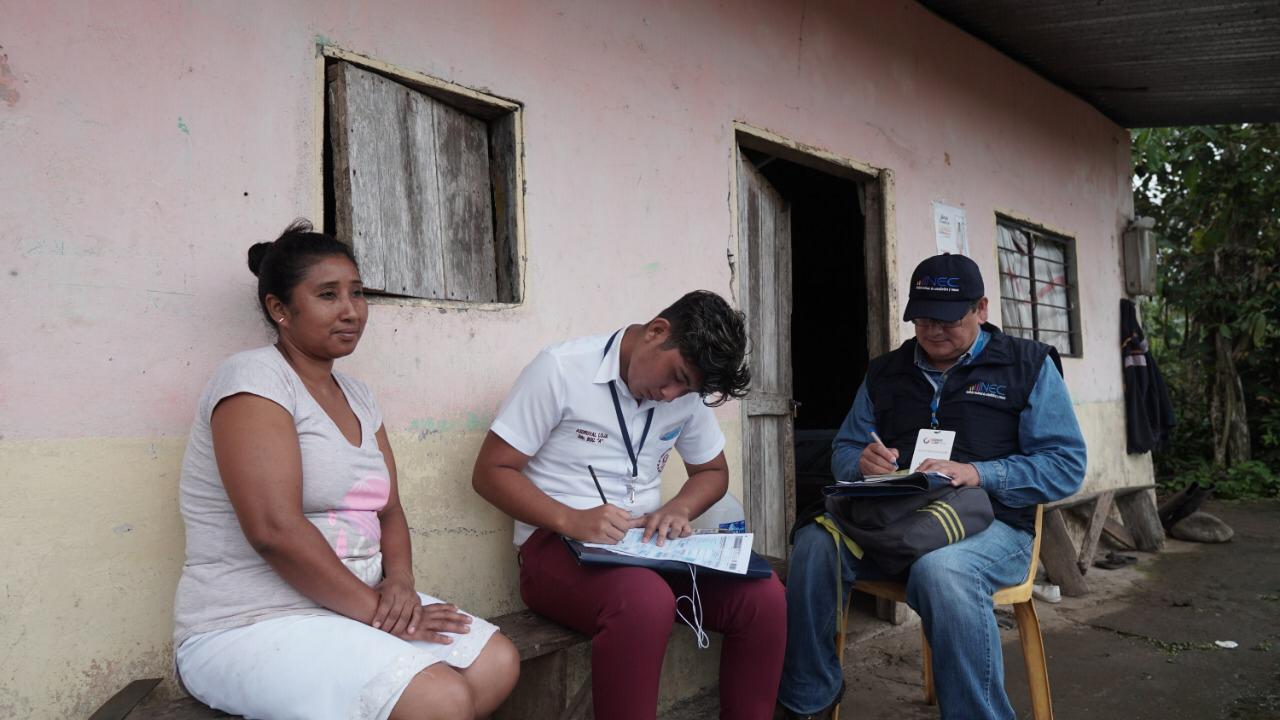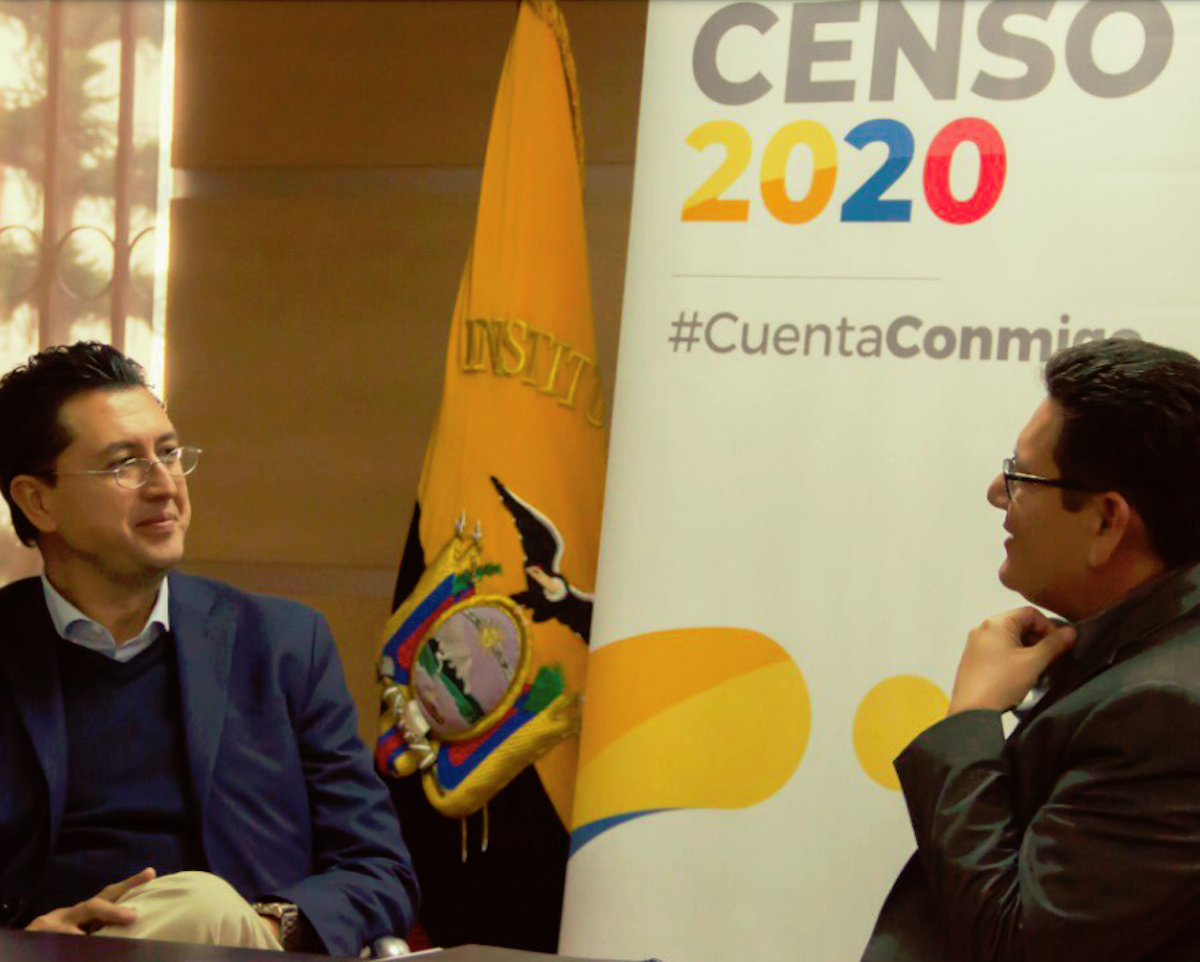 Strengthening Census Planning in Ecuador
Strengthening the census planning process in Ecuador through experience sharing with other Latin American countries
Strengthening Census Planning in Ecuador
Strengthening the census planning process in Ecuador through experience sharing with other Latin American countries

Challenges
In the last three years, the Ecuadorian economy has been characterized by large macroeconomic imbalances, low GDP growth, public spending reduction, and a high level of public debt. For this reason, as part of the “Plan of Prosperity” to address the economic crisis, the government implemented austerity measures and budget cuts that impacted plans for the 2020 National Housing and Population Census. This led NSO to identify cost-cutting measures mainly by reducing the length of the census questionnaire and assessing different information processing strategies. They turned to other countries in the region to learn more about their experience in census planning which formed the basis of this South-South cooperation initiative.
At around this time of the census planning, the Director of NSO was changed just before the experimental census in November 2019. This led to further changes in the managerial positions within the organization which had a further adverse impact on the plans. Based on the experimental census conducted in four cities last year, the NSO team also realized flaws in the procurement process, also aggravated by the current COVID-19 pandemic. The health emergency reduced even more the availability of public funds that could be utilized for the completion of the cartographic update and training of census interviewers. These new challenges led NSO´s technicians to reevaluate the design of each phase of the census and the feasibility of various processing strategies. They looked to other countries in the region for innovative solutions.
Towards a Solution
This South-South cooperation (SSC) initiative highlights how the Chilean, Guatemalan, and Mexican experiences and lessons learned helped strengthen the census planning process in Ecuador. Started in mid-2019 and expected to continue until mid-2022, this partnership is implemented by the Ecuadorian National Statistics Office (NSO), the National Institute of Statistics and Censuses (INEC) and the UNFPA Ecuador Country Office, with the support of UNFPA Regional Office for Latin America and the Caribbean (LACRO).
To address the challenges, Ecuador collaborated with Guatemala and Chile, both of which have applied different strategies in their censuses. The experience of these two countries guided the NSO in identifying the advantages and disadvantages of each strategy and provided technical advice on the best option for the Ecuadorian census. UNFPA´s technical assistance supported NSO during this contingency planning to ensure that the census is conducted as soon as possible.
Among the major efforts undertaken is the provision of technical assistance to the National Institute of Statistics and Censuses (INEC) implemented through a three-year co-sharing agreement between INEC and UNFPA. Under this co-sharing agreement, UNFPA CO Ecuador coordinated the participation of experts from ECLAC, Mexico, Chile and the UNFPA Latin America and the Caribbean Regional Office (LACRO). A visit to Ecuador was organized in November and December 2019 which provided feedback to NSO’s new Director and the technical team regarding questionnaire design, training process for the interviewers, communication, security, and logistics of the census operation. The agreement also included hiring an international expert to advise on Census Management and provide high-level technical advice to the Director of the NSO. All these expert advice and lessons generated by the experimental census guided the re-design and reduction of the questionnaire, and processing strategy for data collection, in order to decrease census costs, without compromising its quality. Remote discussions through video conferences facilitated the exchange of knowledge and technical information among the partners. The technical team in Guatemala, supported by the UNFPA CO, shared lessons learned in their 2018 census particularly in applying manual entry from paper to electronic processing of census data. The counterparts in Chile shared their know-how in applying optical scanning for data capture and lessons learned with this technique used in the Chilean 2017 Census. Both countries helped Ecuador decide on the use of optical scanning as a processing strategy for the Ecuadorian census.
To address the challenges presented by the COVID-19 pandemic, UNFPA and ECLAC, together with the Ecuadorian NSO, formed a technical group to generate strategies to complete the cartographic update with minimum number of field visits. This approach was further guided by decisions to use available technology such as satellite images, online platforms for training interviewers, and other ways to collect data remotely whenever possible. The process was also guided technically by the Population Census and Geospatial Data expert from UNFPA Headquarters. ECLAC and UNFPA LACRO further cooperated with NSO experts to analyze and improve the quality and completeness of mortality records, in response to the COVID-19 emergency. This was done within the framework of ConVERGE (“Connecting Vital Events Registration and Gender Equality”), a partnership between UNFPA and the Centre of Excellence for Civil Registration and Vital Statistics Systems (CoE-CRVS) to ensure that CRVS systems are gender-responsive.
Overall, this initiative has supported a key outcome area in Ecuador´s development agenda aimed at strengthening national and local capacities for the generation, analysis, use, and dissemination of high-quality disaggregated data.
Contact Information
Countries involved
Supported by
Implementing Entities
Project Status
Project Period
URL of the practice
Primary SDG
Secondary SDGs
Similar Solutions
| NAME OF SOLUTION | Countries | SDG | Project Status | |
|---|---|---|---|---|
A Billion Brains: Smarter Children, Healthier Economies High Level Meeting on South-South Cooperation for Child Rights |
Chile, Ecuador, Guatemala, Mexico | 17 - Partnerships for the Goals | Completed | View Details |
A-Card Initiative |
Chile, Ecuador, Guatemala, Mexico | 10 - Reduced Inequalities | Completed | View Details |
Accelerating Digital Transformation in All Ministries in Bangladesh Promoting the rapid design and implementation of plans to digitize all ministries and subordinate government institutions in Bangladesh |
Chile, Ecuador, Guatemala, Mexico | 10 - Reduced Inequalities | Ongoing | View Details |
Accelerating the Implementation of African Union Treaties in São Tomé and Príncipe South-South learning from the Beninese judicial system’s experience in the application of human rights treaties to its national law |
Chile, Ecuador, Guatemala, Mexico | 05 - Gender Equality | Completed | View Details |
Accelerating the Transformational Shift to a Low-Carbon Economy in Mauritius Towards supplying 35 percent of the country’s energy needs with renewables by 2025 |
Chile, Ecuador, Guatemala, Mexico | 05 - Gender Equality 09 - Industry, Innovation and Infrastructure 13 - Climate Action | Ongoing | View Details |

